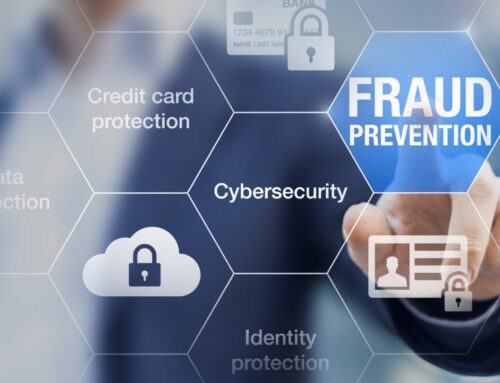Big Brother in the World of Private Investigations: Balancing Surveillance and Privacy Right
Private investigators (PIs) play a vital role in gathering information and evidence for a variety of clients, including businesses, law firms, and private individuals. Surveillance has long been a key tool in the PI industry, enabling investigators to track and monitor subjects to gather information that may not be obtainable through other means. However, as surveillance technology has advanced, concerns about privacy and the potential abuse of surveillance have also grown. In this article, we’ll explore the ethical and legal implications of surveillance in private investigations and discuss potential solutions to the complex issues surrounding this controversial topic.
The Ethics of Surveillance in Private Investigations
Surveillance is a powerful tool for private investigators, enabling them to track and monitor subjects to gather evidence and information that may not be available through other means. However, the use of surveillance raises ethical concerns, particularly when it comes to invasion of privacy. While PIs have a legitimate right to gather information, they must do so within the bounds of the law and without violating the privacy rights of their subjects.
One of the key ethical considerations when it comes to surveillance is the potential for abuse. With the advent of sophisticated surveillance technologies, it has become easier than ever for investigators to conduct invasive, intrusive surveillance that can cross ethical and legal boundaries. For example, some PIs may use GPS tracking devices to monitor the movements of their subjects without their knowledge or consent, which could be seen as a violation of privacy rights.
Another ethical consideration is the use of deception. PIs may sometimes use subterfuge or disguise to gain access to information or to conceal their true identities, which could be seen as deceptive and unethical. While there are situations where the use of deception may be justified, investigators must weigh the potential benefits against the ethical implications of such tactics.
The Legal Implications of Surveillance in Private Investigations
In addition to ethical concerns, there are also legal implications associated with the use of surveillance in private investigations. PIs must operate within the bounds of the law, and failure to do so can result in legal penalties, including fines and even criminal charges.
One of the key legal considerations is the right to privacy. While there is no explicit right to privacy in the U.S. Constitution, there are several federal and state laws that protect individual privacy rights. PIs must be aware of these laws and ensure that their surveillance activities do not violate them. For example, the federal Electronic Communications Privacy Act (ECPA) prohibits the interception of electronic communications, including emails and phone calls, without the consent of at least one party.
Another legal consideration is the use of surveillance technologies. While many surveillance technologies are legal, there are some that are not. For example, the use of hidden cameras in private places, such as bathrooms or changing rooms, is generally illegal. PIs must be aware of the laws surrounding surveillance technologies and ensure that they are not violating any laws when using them.
Balancing Surveillance and Privacy Rights
So how can the PI industry balance the need for effective surveillance with the protection of privacy rights? One solution is to ensure that all surveillance activities are conducted within the bounds of the law and are done so ethically. PIs must be aware of the laws and regulations surrounding surveillance, as well as the ethical considerations involved, and must operate within these boundaries.
Another solution is to use surveillance technologies in a responsible and ethical manner. While surveillance technologies can be extremely powerful, they can also be easily abused. PIs must use these technologies responsibly and only in situations where they are necessary and legally permissible.
Finally, PIs can work with their clients to establish clear guidelines and expectations for surveillance activities. By working with clients to establish clear goals and boundaries, PIs can ensure that their surveillance activities are focused and targeted, rather than overly broad and potentially invasive.
Moreover, PIs can also make use of non-invasive methods of investigation wherever possible. For example, public records searches, interviews, and other non-intrusive methods of investigation can often yield valuable information without the need for invasive surveillance.
In addition, PIs can also work with their clients to educate them about the legal and ethical implications of surveillance. By helping clients understand the risks and potential consequences of surveillance, PIs can ensure that clients are more informed and responsible when it comes to surveillance activities.
Ultimately, the key to balancing surveillance and privacy rights in the PI industry is to ensure that all surveillance activities are conducted in a responsible, ethical, and legal manner. By doing so, PIs can help to ensure that the privacy rights of their subjects are protected, while also providing valuable information and evidence to their clients.
Conclusion
Surveillance is a powerful tool in the world of private investigations, enabling investigators to gather information and evidence that may not be obtainable through other means. However, the use of surveillance also raises ethical and legal concerns, particularly when it comes to invasion of privacy. PIs must operate within the bounds of the law and ensure that their surveillance activities are conducted ethically and responsibly.
Balancing surveillance and privacy rights in the PI industry is a complex and challenging task, but it is essential to ensuring that the rights of all parties involved are protected. By working within the boundaries of the law, using surveillance technologies responsibly and ethically, and educating clients about the legal and ethical implications of surveillance, PIs can help to ensure that surveillance activities are conducted in a way that is fair, just, and respectful of the privacy rights of all individuals.





